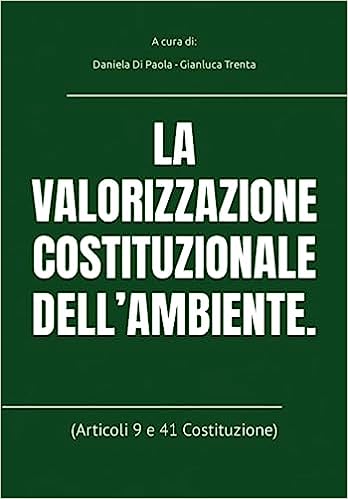______________ AMBIENTEDIRITTO ______________
FOCUS
LE NUOVE FUNZIONI PORTUALI NELLA TRANSIZIONE ENERGETICA
The new port functions in the energy transition
Giovanni Gugliotti
ABSTRACT (it.): Nel quadro della transizione ecologica europea, i porti marittimi stanno progressivamente assumendo un ruolo strategico nella produzione, gestione e distribuzione dell’energia, evolvendo in veri e propri hub energetici multifunzionali. L’articolo analizza la nuova configurazione dei porti come spazi energetici integrati, alla luce delle più recenti normative europee e nazionali, con particolare attenzione al Green Deal, al regolamento AFIR (UE) 2023/1804 e agli strumenti attuativi interni (PNIEC, PNRR, Piano del Mare). Si esaminano le principali infrastrutture di supporto alla decarbonizzazione del settore marittimo, come il cold ironing, le reti per i carburanti alternativi (GNL, idrogeno, biocarburanti) e l’eolico offshore, con focus sul porto di Taranto quale caso studio emblematico. Vengono inoltre approfondite le forme di governance energetica multilivello e il ruolo delle Autorità di Sistema Portuale nella promozione delle Comunità Energetiche Rinnovabili Portuali (CERP), intese come strumenti di amministrazione condivisa e sostenibilità industriale. Il contributo, infine, propone una riflessione sul porto quale infrastruttura pubblica orientata alla transizione ecologica, alla resilienza climatica e all’efficienza energetica..
ABSTRACT (en.): Within the framework of the European ecological transition, seaports are progressively assuming a strategic role in the production, management, and distribution of energy, evolving into true multifunctional energy hubs. This article examines the reconfiguration of ports as integrated energy spaces, in light of recent European and national regulations, with particular reference to the Green Deal, Regulation (EU) 2023/1804 (AFIR), and domestic implementation tools such as the PNIEC, the National Recovery and Resilience Plan (PNRR), and the National Maritime Plan. The analysis focuses on key infrastructures supporting the decarbonisation of the maritime sector, including cold ironing systems, networks for alternative fuels (LNG, hydrogen, biofuels), and offshore wind energy, with a specific case study on the port of Taranto. The article also explores multi-level energy governance models and the role of Port System Authorities in promoting Renewable Energy Communities in Ports (CERP), regarded as tools for shared administration and industrial sustainability. Finally, the paper offers a reflection on the port as a public infrastructure aimed at ecological transition, climate resilience, and energy efficiency.
SOMMARIO: 1. Politiche europee e green ports. 2. Il cold ironing. 3. Infrastrutture portuali e nuovi carburanti. 4. Le Comunità energetiche portuali (CERP). 5. La prospettiva dell’eolico. Il caso Taranto.
Scarica allegato






 AMBIENTEDIRITTO.IT Casa Editrice
AMBIENTEDIRITTO.IT Casa Editrice